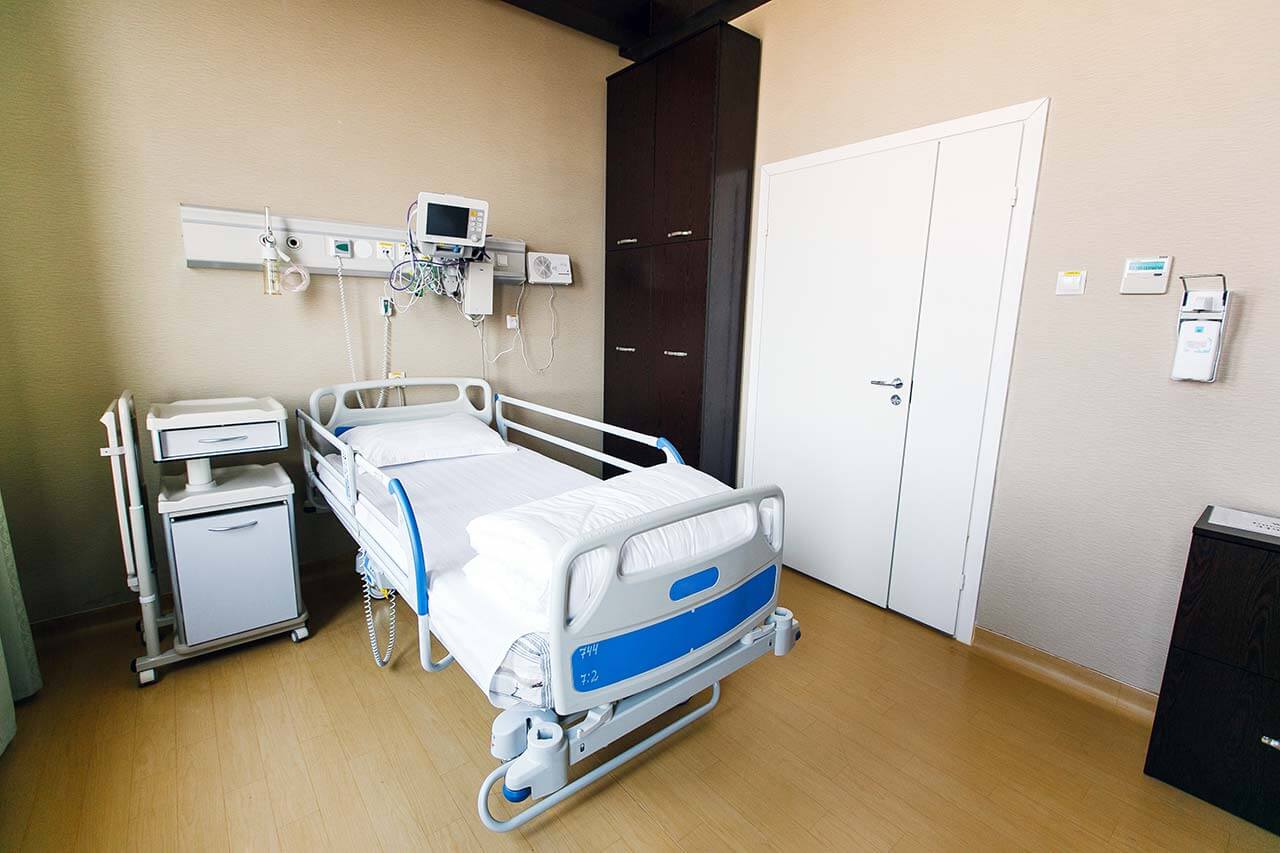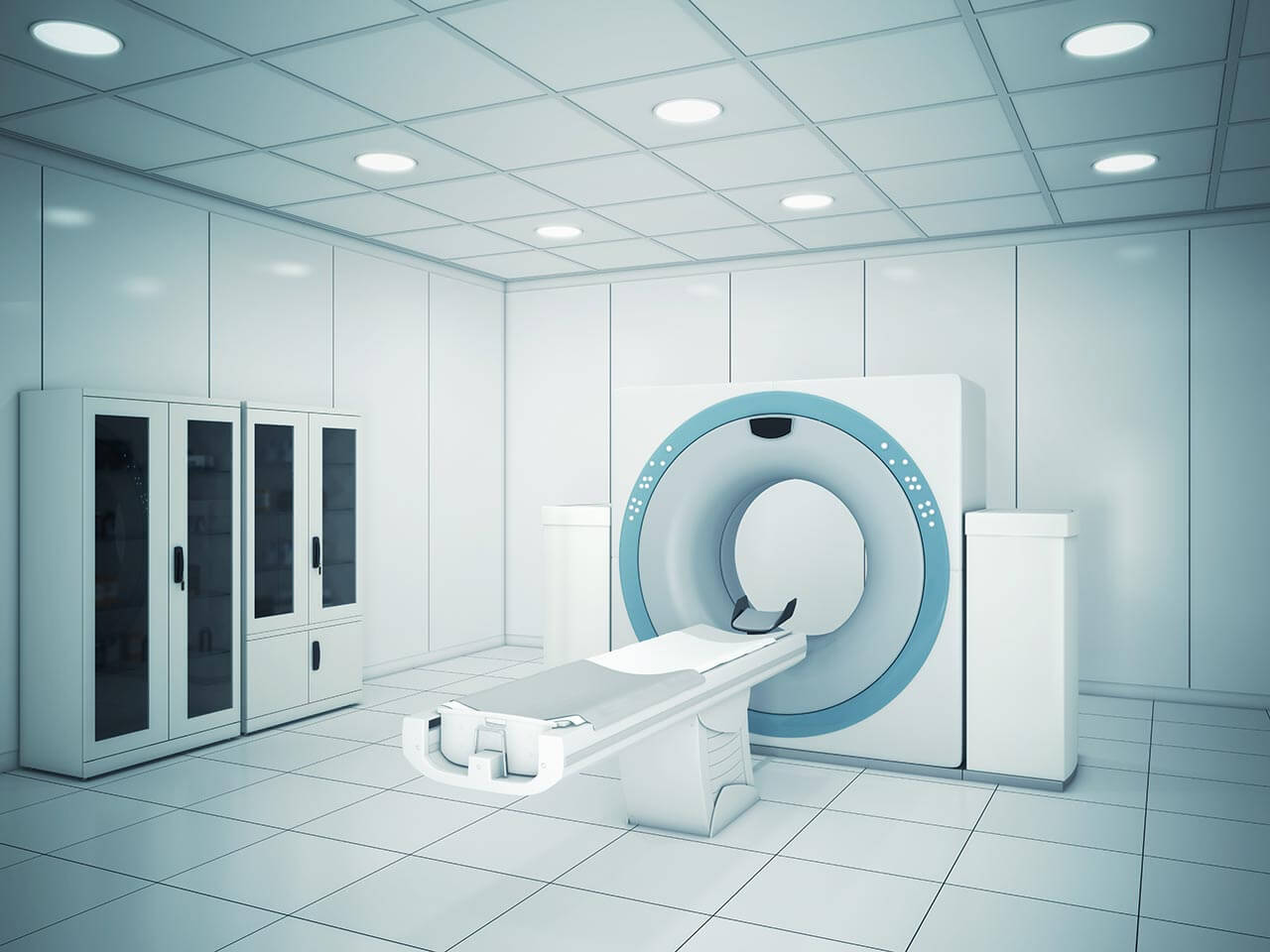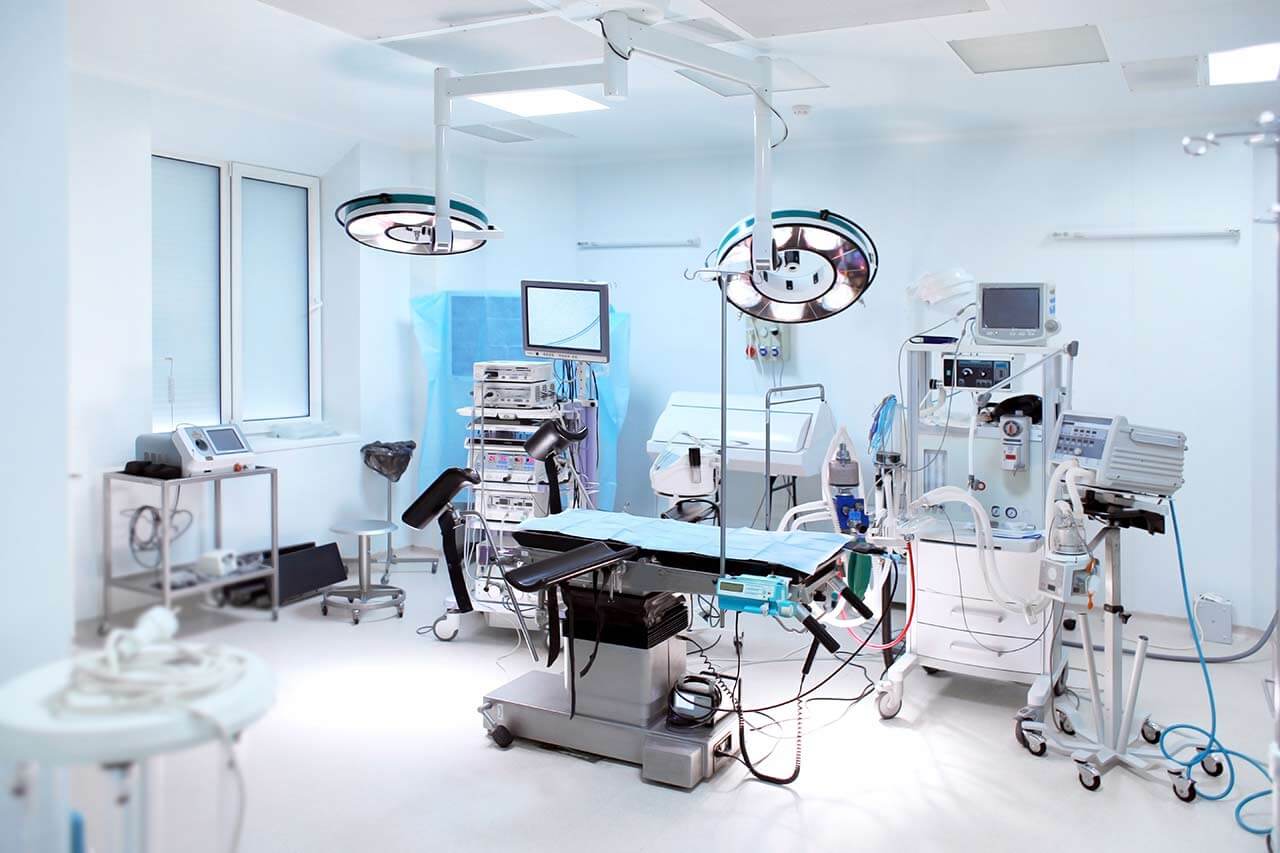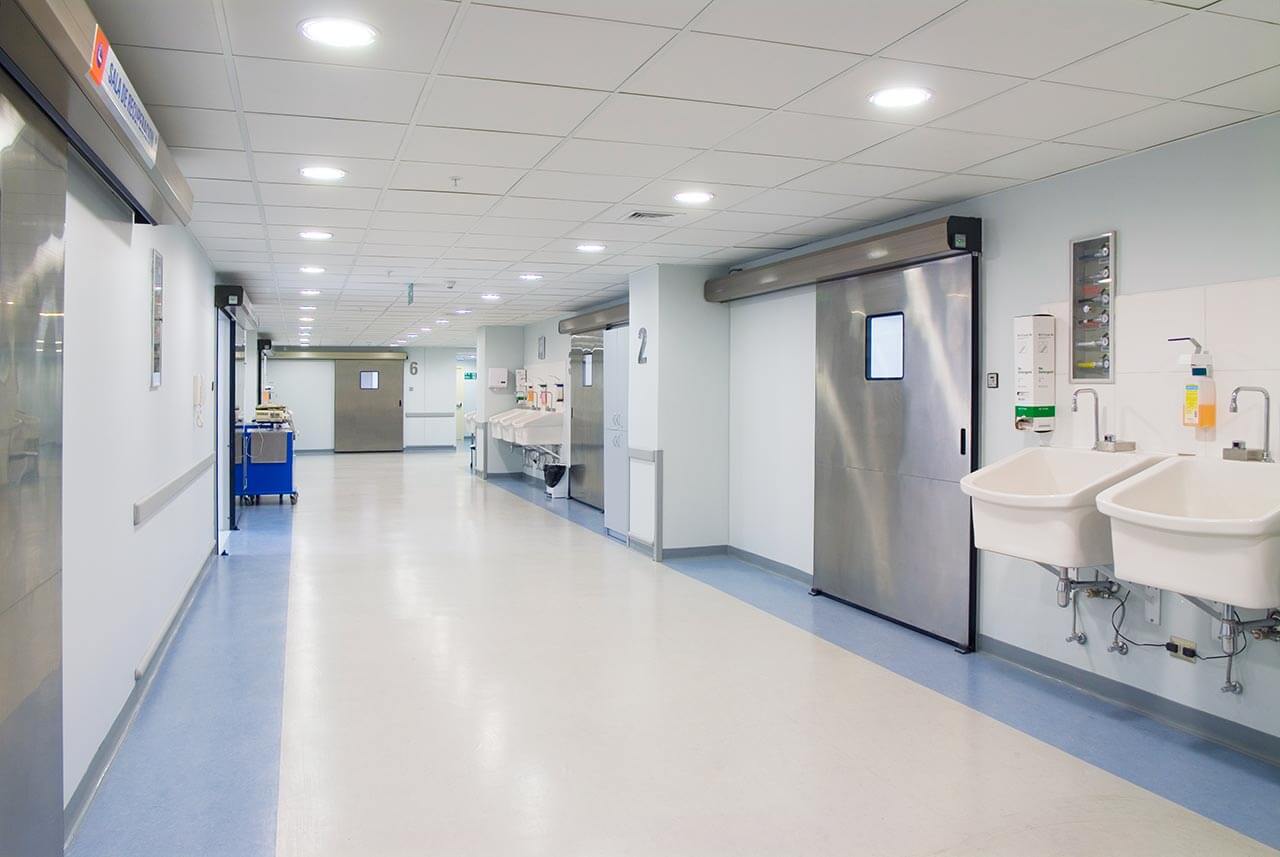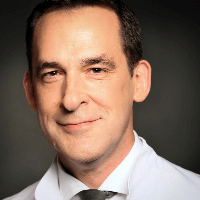
The program includes:
- Initial presentation in the clinic
- clinical history taking
- review of medical records
- physical examination
- ultrasound of the achilles tendon
- x-ray of the achilles tendon
- MRI examination (if indicated 1200 €)
- nursing services
- consultation of related specialists
- consultation of the chief physician and all leading experts
- development of individual treatment plan
Required documents
- Medical records
Service
You may also book:
 BookingHealth Price from:
BookingHealth Price from:
About the department
According to the prestigious Focus magazine, the Department of Adult and Pediatric Orthopedics, Trauma Surgery, Foot Surgery at the Alfried Krupp Hospital in Essen-Ruettenscheid ranks among the top German medical facilities in the fields of its expertise!
The department provides the full range of diagnostic and therapeutic services to patients with musculoskeletal injuries and diseases. The department offers medical care to patients of all age groups – from young children to adults and the elderly. The department's specialists admit more than 5,500 inpatients every year. The medical facility also provides outpatient medical care. The department enjoys the status of a regional Trauma Center certified by the German Society for Trauma Surgery (DGU). Joint replacement surgery is one of the priority areas of the department's clinical practice. The medical facility has been awarded the endoCert certificate in this medical field, which confirms the high efficiency and safety of joint replacement surgery. The team of the department's doctors prefers modern treatment methods: whenever possible, specialists use only conservative treatments, and if there are absolute indications for surgery, they resort to minimally invasive, arthroscopic and endoscopic interventions. The surgical treatment involves the use of advanced computer navigation systems, which guarantee high accuracy of each surgeon's manipulation. The department is headed by Prof. Dr. med. Sven Lendemans.
One of the priority tasks of the department's orthopedists is the treatment of joint diseases. Since 2018, the department has been certified as a Joint Replacement Center by the German Society for Orthopedics and Orthopedic Surgery (DGOOC). Only the best orthopedic clinics in Germany receive such a quality certificate, and therefore it is a guarantee of top-class medical services and high competence of surgeons. The department is most often visited by patients with hip and knee pain. The department also provides medical care to patients with shoulder and ankle pathologies. The most common causes of joint dysfunction are arthrosis (joint tissue degeneration), infections and cancer. Doctors often have to resort to arthroplasty (joint replacement surgery), since most patients seek medical care at the advanced stages of the disease, when conservative methods are no longer effective. Arthroplasty is the only effective way to relieve pain, restore joint function, and eliminate movement limitations. The department performs partial and total joint replacement surgery. Total arthroplasty is usually the last-line therapy. The department's surgeons work with modern computer-assisted equipment that allows choosing the optimal model of the prosthesis or creating a 3D model of an artificial joint for its customized manufacturing in accordance with the patient's individual anatomical characteristics. Such an approach allows ensuring the best result of joint replacement surgery and maximally restore the patient's mobility. An undeniable advantage for the department's patients is that arthroplasty is performed using minimally invasive techniques, namely, through several small skin incisions. In addition, when performing surgery, doctors use intraoperative navigation, which makes it possible to place the prosthesis as accurately as possible. Depending on the complexity and volume of the forthcoming operation, arthroplasty can be performed under local or general anesthesia. After surgery, patients receive the necessary care. Physiotherapists also work with the patients, since they help them to get on their feet for the first time and restore joint movement. However, orthopedists of the medical facility strongly advise patients to undergo comprehensive rehabilitation in the specialized center.
The department is recognized as a regional Trauma Center (certificate of the German Society for Trauma Surgery, DGU), as it provides the full range of services for the treatment of musculoskeletal injuries. Particular attention is paid to emergency care for injuries, arthroscopic interventions on large joints in case of their lesions, treatment of pelvic and spinal injuries, as well as sports injuries. The department's specialists have unique skills in the treatment of patients with severe injuries and in the treatment of elderly patients (geriatric traumatology). The Trauma Center admits patients around the clock. There is also a helipad here, which makes it possible to transport patients extremely quickly.
An integral part of the department's clinical activities is the treatment of degenerative diseases and spinal injuries. Doctors have in their arsenal both conservative and surgical treatments. Conservative methods include infiltration therapy, periradicular therapy, facet and sacroiliac joint blocks, radiofrequency facet denervation, physiotherapy, manual therapy, medical training therapy, etc. If the results of the preliminary diagnostic examination indicate that attempts to eliminate pain and restore the function of the spine with the help of conservative therapy will be unsuccessful, surgical treatment becomes an option of choice. The department performs microsurgical interventions on intervertebral discs, intervertebral disc replacement surgery, surgery for spinal tumor resection, corrective interventions for traumatic and non-traumatic spinal deformities, spinal stabilization. Almost all spinal interventions are performed using sparing surgical techniques and intraoperative monitoring systems, which contributes to the high efficiency of treatment and its safety for the patient.
The department admits not only adults, but also children, since a specially trained team of pediatric orthopedists and traumatologists works here. The key interest in the field of pediatric orthopedics includes ultrasound scanning of newborns for the early detection of hip dysplasia, Perthes disease, slipped capital femoral epiphysis, joint inflammatory lesions, spinal curvature (kyphosis, scoliosis, Scheuermann's disease), congenital deformities (impaired bone growth, O-shaped and X-shaped deformities of the lower extremities), foot diseases (clubfoot, flat feet, heel foot), musculoskeletal tumors (osteosarcoma, Ewing's sarcoma, bone cysts), etc. The department's pediatric traumatologists carry out conservative and minimally invasive treatment of traumatic musculoskeletal injuries in children.
A special field of the department's work is the surgical treatment of foot pathologies. The surgeons of this specialization perform operations to repair hallux valgus, ankle arthroplasty, arthrodesis, surgical treatment of metatarsal injuries, repair of hammer and claw toes, nail bed plastic surgery, transplantation of ankle cartilage tissue, correction of complications of peripheral nerve lesions and compression syndromes of the foot, etc. The department mainly uses arthroscopic and minimally invasive surgical techniques, which can significantly reduce the period of postoperative recovery and alleviate pain.
The department's range of medical services includes:
- Adult orthopedics and traumatology
- Partial and total knee, hip, shoulder and ankle replacement surgery
- Arthroscopic surgery
- Knee surgery
- Cruciate ligament surgery
- Joint-preserving surgery (for example, meniscus suturing, meniscus replacement, cartilage cell transplantation)
- Patella stabilization
- Treatment of knee fractures
- Hip surgery
- Surgery for femoroacetabular impingement
- Surgery for acetabular labral tears
- Articular cartilage restoration (microfracturing, AMIC, ACT)
- Shoulder surgery
- Shoulder dislocation repair
- Rotator cuff tear repair
- Elbow surgery
- Dislocation repair
- Ligament plastic surgery for chronic elbow instability
- Cartilage interventions (regenerative therapy, nanofracturing, AMIC)
- Removal of free articular bodies and arthrolysis
- Open and minimally invasive interventions for elbow fractures
- Knee surgery
- Septic surgery
- Interventions for acute and chronic infections of the bones, soft tissues and joints
- Interventions for implant-associated infections
- Interventions for pseudoarthrosis
- Interventions for post-infectious defects
- Spinal and pelvic surgery
- Microsurgical interventions on the intervertebral discs
- Intervertebral disc replacement surgery
- Surgery for spinal tumor resection
- Surgery for inflammatory spinal diseases
- Surgery for traumatic and non-traumatic spinal deformities
- Stabilization surgery on the cervical, thoracic and lumbar spine
- Infiltration therapy
- Periradicular therapy
- Facet and sacroiliac joint blocks
- Radiofrequency intervertebral denervation
- Pediatric orthopedics and traumatology
- Ultrasound diagnostics for early detection of hip dysplasia with follow-up treatment
- Treatment of Perthes disease
- Treatment of slipped capital femoral epiphysis
- Treatment of inflammatory joint diseases
- Correction of spinal curvature
- Kyphosis
- Scoliosis
- Scheuermann's disease
- Correction of congenital musculoskeletal deformities
- Impaired bone growth
- O-shaped and X-shaped deformities of the lower extremities
- Correction of the wrong foot position
- Clubfoot
- Flat feet
- Heel feet
- Sickle-shaped feet
- Treatment of musculoskeletal tumors in children
- Osteosarcomas
- Ewing's sarcomas
- Tumor-like lesions (for example, fibrous dysplasia, bone cysts, exostosis)
- Complications of tumors (for example, local bone defects, pseudoarthrosis, osteonecrosis)
- Treatment of musculoskeletal injuries in children
- Foot surgery
- Ankle replacement surgery
- Ankle arthroscopy
- Hallux valgus repair
- Treatment of metatarsal injuries
- Repair of hammer and claw toes
- Nail bed plastic surgery
- Ankle cartilage transplantation
- Correction of complications of peripheral nerve lesions and compression syndromes in the foot
- Treatment of traumatic foot injuries
- Other therapeutic options
Curriculum vitae
Prof. Dr. med. Sven Lendemans holds the position of the Head of the Department of Adult and Pediatric Orthopedics, Trauma Surgery, Foot Surgery at the Alfried Krupp Hospital in Essen-Ruettenscheid. The specialist gained his clinical experience at the University Hospitals in Essen and Giessen, which are known as one of the best medical facilities in Germany. According to the Focus magazine, Prof. Lendemans regularly ranks among the best German doctors specializing in the treatment of orthopedic diseases and musculoskeletal injuries. Dr. Sven Lendemans also has a Master's Certificate from the German Spine Society (DWG).
The doctor's clinical interests include arthroplasty, knee surgery, hip surgery, treatment of musculoskeletal injuries, including bone fractures, and sports injuries.
Photo of the doctor: (c) Alfried Krupp Krankenhaus
About hospital
The Alfried Krupp Hospital in Essen-Ruettenscheid began its work back in 1870, and large-scale restoration took place here in 1980. The medical facility is an academic hospital of the University of Duisburg-Essen, thanks to which it has access to innovations in the medical field, and also makes its own contribution to the development of modern therapeutic techniques. The hospital has 13 departments and various highly specialized centers, including the Breast Center, Endoprosthetics Center, Lung Cancer Center, Trauma Center and others. The hospital has 575 beds for patient hospitalization. The hospital also offers outpatient medical care. Every year, the hospital's team of doctors admits over 80,000 patients for diagnostics and treatment. For many years, the medical facility has held a leading position in the German medical arena, and is also widely known for its high quality standards in many other countries of the world. The hospital can be proud of its successful experience in providing medical care to foreign patients.
The priority fields of the hospital's work include the treatment of oncological, hematological, gastroenterological, gynecological, urological, neurological, orthopedic and other diseases. The high quality standards of medical care are facilitated by the constant updating of medical equipment and advanced training courses for medical personnel. The hospital widely applies modern methods of conservative treatment, progressive laparoscopic surgical techniques, as well as innovative robotic surgery using the da Vinci Xi system.
The medical facility has been awarded numerous quality certificates confirming the outstanding clinical work of its specialists. These include, in particular, a certificate of the German Society for General and Visceral Surgery (DGAV) in the field of bariatric surgery, colorectal surgery, pancreatic surgery and minimally invasive surgery, an endoCert certificate in the field of joint replacement surgery, a certificate of the German Cardiac Society (DGK) in the field of emergency cardiac care, a certificate of the German Cancer Society (DKG) in the treatment of prostate and lung cancer, a certificate of the German Stroke Society, a certificate of the German Society of Phlebology and others.
Special attention should be paid to the exceptional professionalism of the doctors working at the hospital, who apply all their rich experience and deep knowledge to restore the health of patients. The specialists use an individual approach in their work and carefully think over each treatment regimen so that the patient gets the maximum result, but at the same time the course of therapy is as sparing as possible. The hospital's team of doctors keeps pace with the very latest medical advances and actively implements them into clinical practice for the benefit of patients.
Photo: (с) depositphotos
Accommodation in hospital
Patients rooms
The patients of the Alfried Krupp Hospital in Essen-Ruettenscheid live in comfortable single and double rooms with light colors. For maximum convenience, each patient room has an ensuite bathroom with shower and toilet. The patient room includes a comfortable automatically adjustable bed with an orthopedic mattress, a bedside table, a wardrobe, a table and chairs, as well as a TV and a telephone. Wi-Fi is available upon request.
The hospital also offers enhanced-comfort rooms corresponding to the level of an upscale hotel room. Such patient rooms additionally include upholstered furniture, a safe, a minifridge, and an air conditioner. Daily fresh newspapers, seasonal fruits, coffee and tea are offered to the patient in the room (upon request).
Meals and Menus
The patients of the hospital are offered delicious meals three times a day. Breakfast and dinner are served buffet style with a wide selection of cheese, cold meats, vegetables, fruits, pastries, etc. For lunch, there is a choice of several set menus. The patients living in an enhanced-comfort room benefit from a separate menu for breakfast, lunch and dinner with a large assortment of delicious dishes.
Further details
Standard rooms include:
Religion
The services of representatives of religions are available upon request.
Accompanying person
During an inpatient program, an accompanying person can stay with you in the patient room or in a hotel of your choice.
Hotel
During an outpatient program, you can stay in a hotel of your choice. The managers will help you choose the most suitable options.
